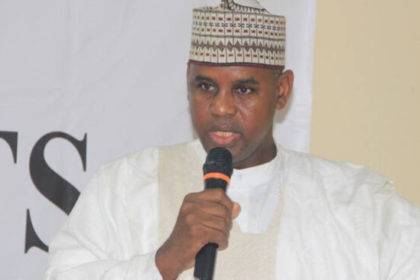
By Adeyemi Adekunle
Israeli Prime Minister Benjamin Netanyahu met with U.S. President Donald Trump on Monday in Washington, marking the first major foreign visit since Trump’s controversial “Liberation Day” tariffs triggered a historic market plunge.
The bilateral meeting, held behind closed doors at the Trump International Hotel, came at a critical juncture. With escalating tensions in the Middle East, a resurgent Iran, and a battered global economy bracing from Trump’s sweeping 35% tariffs on key imports, the two leaders huddled to discuss what aides described as a “recalibration of U.S.-Israel strategic interests.”
At the top of the agenda were Iran’s nuclear ambitions and the ongoing humanitarian crisis in Gaza. Both leaders have long shared a hawkish stance on Tehran, and Monday’s discussion reportedly revisited proposals for joint deterrence efforts—including potential cyber operations and intelligence cooperation.
“We are facing a dangerous axis of instability—Tehran is emboldened, and Gaza remains a powder keg,” Netanyahu said briefly after the meeting. “Our bond with the United States is essential for regional stability, and I am confident that with President Trump’s leadership, we will restore deterrence and peace.”
Trump, who has been holding informal policy discussions amid speculation of a 2028 political comeback, used the moment to defend his recent economic moves.
“My tariffs are about American strength—bringing our jobs back and holding corrupt regimes accountable. Israel understands that kind of strength,” Trump said, pointing toward what he called “unshakable mutual respect” with Netanyahu.
The meeting sparked criticism from Democrats and human rights organizations. They argue that both leaders are exploiting geopolitical instability for domestic political gain—Netanyahu facing trial at home, and Trump under scrutiny for his economic policies.
Despite the tensions, the symbolism of the meeting was clear: a show of solidarity between two leaders whose political fates are as controversial as they are entwined.
The visit comes as Netanyahu’s government grapples with international condemnation over its military campaign in Gaza, which has left thousands displaced. Meanwhile, Trump’s tariffs have rattled Wall Street, with the S&P 500 dropping nearly 6% in the wake of his announcement.
Analysts say the meeting signals a potential reboot of a familiar axis in global politics—one that prioritizes nationalism, security hawkishness, and bilateral diplomacy over multilateralism.
“The optics are unmistakable,” said Lena Marwan, a Middle East analyst at the Brookings Institution. “This is not just about Israel and the U.S.—it’s a message to the world that Trump and Netanyahu still wield influence, and they intend to use it.”
As markets continue to reel and global alliances shift, all eyes now turn to what comes next—both in Gaza and on the campaign trails of Washington and Jerusalem.



